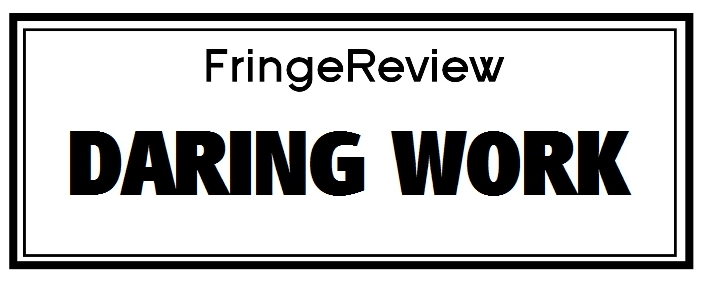Prague Fringe 2019
Where Are You Really From?
ŇUN & VÍ

Genre: Comedic, Dance and Movement Theatre, Experimental, Fringe Theatre, Performance Art, Physical Theatre, Political
Venue: Museum of Alchemists
Festival: Prague Fringe
Low Down
Identity is an undeniably messy topic. Imagine trying to sum up an entire culture using songs, symbols, and stereotypes on a stage. Then double that challenge by throwing in a second culture. Ňun & Ví approach this daunting task with fearlessness, cheerful enthusiasm, and an incredible amount of physical, theatrical, and linguistic talent.
Review
Any traveler faced with the question of “What’s [insert your country] like?” has at least a tiny glimpse into the complexity of the show’s title. Where do you begin? Do you talk about the landscape, the weather, or traditional foods? Do you discuss politics, parental dynamics, or the most common stereotypes? How long an answer would be required to fully represent the complexity of a culture? And if someone asks this question, what do they really want to know?
Ňun & Ví, two second-generation Vietnamese immigrants in the Czech Republic, spend an hour exploring their intersecting identities in a show as fast-paced, multilingual, exciting, and occasionally confusing as stepping out of an airport into a foreign capital city. Their talent for timing and physicality are proven within the opening minutes of the show, ensuring that the audience’s eyes will stay glued to anything they try next.
That ability to demand attention guides the audience through a variety of experiments: candlelit monologues to different relatives, videos on laptop screens, sections of dance and movement, and comfortable banter between two obviously good friends. At various moments, the pair sing the Czech national anthem “Kde domov můj?”(“Where is My Home?”), eat rice onstage, and read statements from Czech politicians about the Vietnamese immigrant community. All of these seem both unexpected and somehow perfectly connected to their stream-of-consciousness attempts to give us a glimpse inside their lives.
If I were asked after the show to describe Ňun & Ví’s identities, I would certainly struggle to give a succinct answer. The defining characteristics would include confidence, charisma, and near-constant societal conflict, but that only scratches the surface of what to expect from this bold and imaginative show. I can’t say that I understood everything they were trying to say, or that I should even feel entitled to as an outsider of both cultures, but I can say that I left feeling grateful to be in the audience and thoroughly entertained.


















































